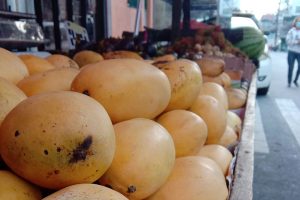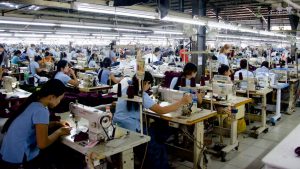THE GOVERNMENT should focus on expanding production of crops where it enjoys a competitive advantage, such as fruit, to boost agricultural exports, analysts said.
“There is evidence that we are competitive in certain products, particularly fruit,” Ateneo de Manila economics professor Leonardo A. Lanzona said in a Messenger chat.
He added that the government’s role is to facilitate these growers’ expansion to achieve adequate scale to service export markets.
Agricultural exports rose 10.7% to $1.72 billion during the first quarter, according to the Philippine Statistics Authority.
Fermin D. Adriano, former Agriculture Undersecretary for Policy, Planning, and Research, said despite the expansion during the previous quarter, production for exportable farm goods is still facing funding constraints.
“The agri budget provides inadequate support as 60% of (the Department of Agriculture’s) funding goes to supporting rice,” Mr. Adriano said via Viber.
Leading farm exports during the period were edible fruit and nuts, as well as peel of citrus fruit and melons, valued at $517.96 million or 30.1% of the total.
Rizal Commercial Banking Corp. Chief Economist Michael L. Ricafort said improved foreign ties may have contributed to the increase in exports.
“Diversifying further to more export markets, as well as more free trade agreements (FTAs) with more countries on top of the (Regional Comprehensive Economic Partnership) and the South Korea-Philippines FTA will help boost (exports),” Mr. Ricafort said via Viber.
RCEP involves the Association of Southeast Asian Nations, China, Japan, South Korea, New Zealand, and Australia. It took effect in June last year.
It allows minimal to zero restrictions in terms of quantities and seeks to minimize import taxes.
Mr. Lanzona said the Philippines continues to show a deficit in agricultural trade due to its reliance on imports.
The deficit in agricultural trade narrowed to 6.5% during the first quarter, with an increase in exports offsetting a 0.3% decline in imports.
“This suggests we continue to struggle because the economy continues to be import dependent in food products,” he added.
The DA had said that it is seeking to improve agricultural exports, especially tropical fruit like banana, mango, and pineapple.
In January, the DA said it is preparing a Philippine Agricultural Export Development Plan. — Adrian H. Halili





